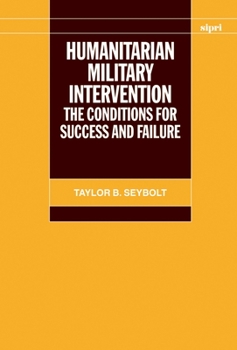Humanitarian Military Intervention: The Conditions for Success and Failure
Select Format
Select Condition 
Book Overview
This study focuses on the questions of when and how military intervention in conflicts can achieve humanitarian benefits. It uses the standard that an intervention should do more good than harm to evaluate the successes and failures. The author develops a methodology to determine the number of lives saved, as a minimalist measure. The analysis of 19 military operations in the 6 case studies of Iraq, Somalia, Bosnia, Rwanda, Kosovo and East Timor reveals both successful and unsuccessful interventions in the same locations. The study posits that an intervention's short-term effectiveness depends primarily on six factors within the control of the intervenor, rather than factors inherent within the conflict. Political and humanitarian dimensions are combined to create a typology that compares the needs of populations suffering from conflict with an intervenor's military intervention strategies, motives, capabilities and response time. Hypotheses derived from the model are tested in the case studies and policy implications are offered.
Format:Paperback
Language:English
ISBN:0199551057
ISBN13:9780199551057
Release Date:September 2008
Publisher:Oxford University Press, USA
Length:312 Pages
Weight:1.20 lbs.
Dimensions:0.6" x 6.1" x 9.1"
Customer Reviews
0 rating





